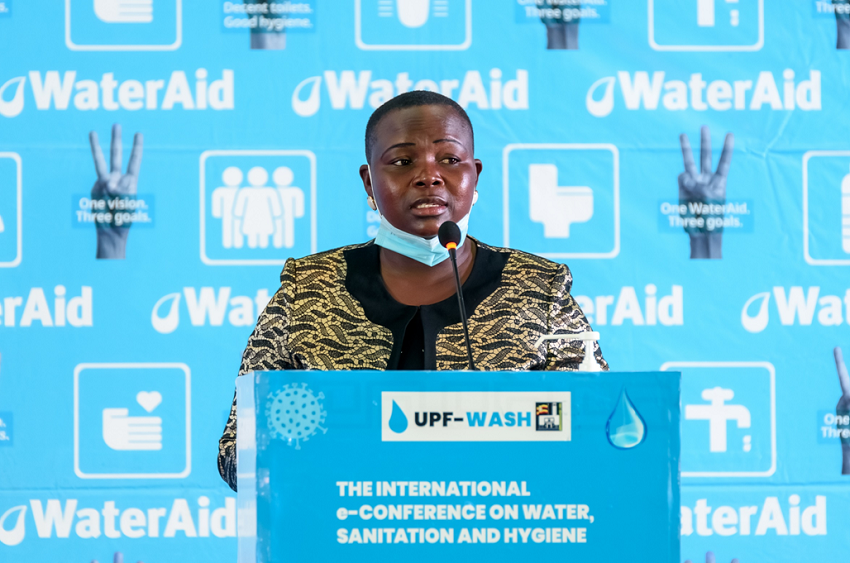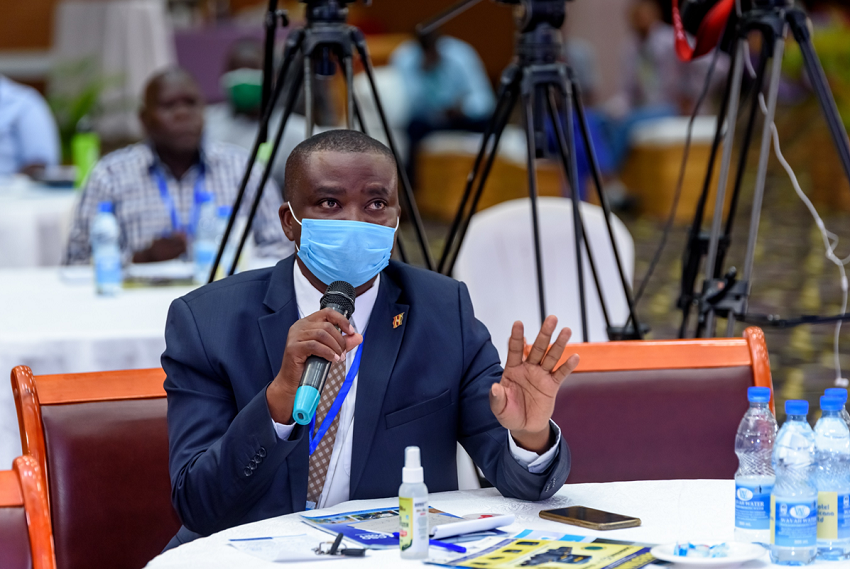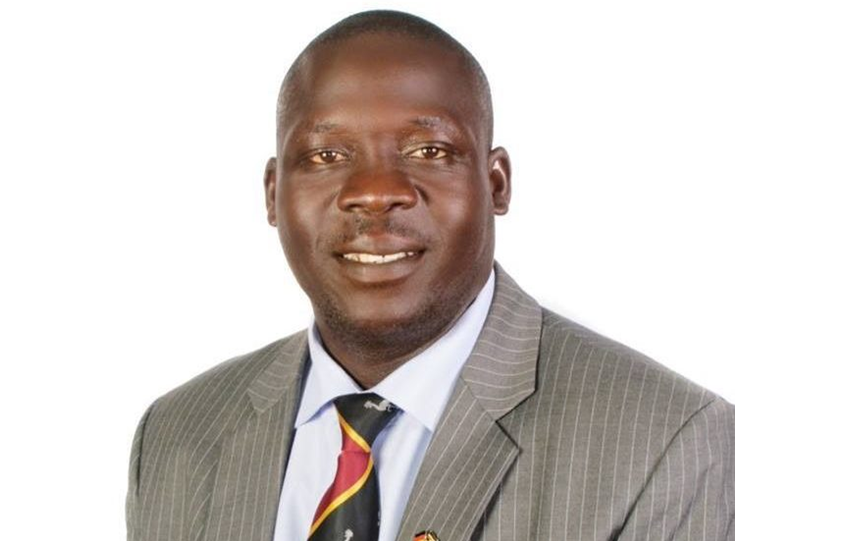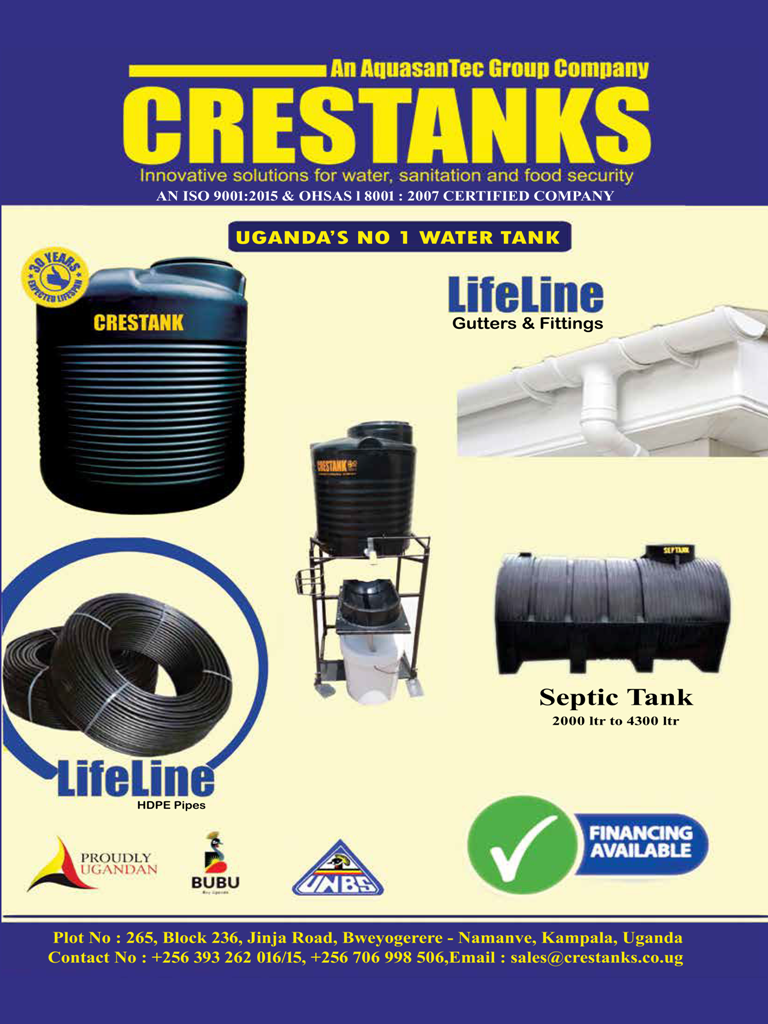The Parliamentary Forum on Water, Sanitation and Hygiene (UPF-WASH) was set up in 2012 to respond to water, sanitation and hygiene issues in Uganda.
The forum was created basing on the recommendation by WaterAid Uganda in 2012 after its study which looked at the role of Parliament in ensuring that citizens have access to safe drinking water, sanitation and hygiene, including policy making, policy regulation, budgeting, ensuring government accountability and citizen representation.
The independent network forum, led by a 10 person elected executive committee, was formed mainly to enable legislators from both political divides to freely interact with each other and with the civil society and development partners around WASH-related issues.
As the 10th Parliament’s tenure comes to an end, the current leadership of Uganda Parliamentary Forum on Water, Sanitation and Hygiene (UPF WASH) has explained that they have achieved quite a number of milestones as far as WASH is concerned.
According to the Ngora Woman legislator, Jacqueline Amongin, the chairperson of UPF WASH, they have managed to influence government policy to remove VAT on domestic water, which was supposed to have been charged 6%.
She says they have legislated at parliamentary level, whereby any loan for the constructing of roads cannot be approved without a clear permit provision of sanitary facilities on highways.
Amongin adds that they have ensured that the Government puts in place private-public partnerships (PPPs) arrangements for highway facilities to reduce on open defecation in communities.
“We have also successfully managed to come up with a motion that was debated in Parliament on the menstrual health and hygiene policy for the Government to provide a holistic approach to menstrual hygiene. The policy has not yet been passed by Cabinet, but it is something in the offing,” she says.

Woman Member of Parliament,Ngora District
The forum has also advocated increase on the budget for water for domestic use. President Yoweri Museveni previously made a pledge of having access to water in all villages which is on the increase and implementation is on track.
Silas Aogon, the Kumi Municipality legislator and a member of the forum, says at the national level, they were able to participate in the African Ministerial Conference on the Environment (AMCEN) last year. At AMCEN, Aogon represented the forum and the voice of Uganda was heard in that forum that had African ministers coming together to talk about the blue/ocean economy.
“Besides the meetings we have been holding with civil society to identify the critical needs for attention, we have also been able to champion lobbying through the various committees of Parliament such as the budget committee, natural resources committee and on the floor of the House. We have also championed issues of increasing the budget on handwashing and primary health care (PHC) generally,” he says.
Aogon adds that they have been carrying out sanitation campaigns and in 2017, They were able to move to Oyam and some other districts carrying out hygiene sensitisation.

UPF WASH has also been working with civil societies in western Uganda to make sure they help to revamp River Nyamwamba which was being destroyed. They have registered considerable progress on the issue.
Challenges
According to Benard Atiku, the Ayivu County legislator and a member of the UPF WASH forum, their main challenges have been linked to funding, the national budgeting on water and challenges of enforcement of hygiene and sanitation.
“We need strong support in terms of funding. Parliament cannot fund us because this is a forum and not a committee, so we are not able to access direct funding. Unless we are funded by civil society or someone else, we are not sure of the next day. However, we appreciate Parliament because it always provides transport means (vans). The challenge comes when we have to pay fuel, the drivers and the Police that provide security,” Atiku says.
Amongin also shares the same sentiments as she explains that they still have the ‘Bulungi bwa’nsi’ Bill on the floor of Parliament that needs sponsorship which they have not yet got because it has a financial implication.
“If the Government was not involved, we would have okayed it already. Also, every Parliament comes with new people, so, you have to start afresh with a new team, new champions of UPF WASH,” she explains.
The future
When elected back in the 11th Parliament, Amongin says the first thing they will do will be capacity building and recruiting of more MPs to be WASH champions in the House.
“We shall continue pursuing our ‘Bulungi bw’ansi’ Bill and now that COVID-19 is a serious issue in the country and the world, we have to make sure that we redirect our policy on hand-washing and access to water. This is because you cannot talk about hand-washing when people cannot have access to water,” she says.
Atiku also explains that UPF WASH will need to advocate funding and improve on advocacy for a bigger budget.
He says on the issue of enforcement, hygiene and sanitation is one area where there is a lot of laxity and yet most of the diseases that are burdening the population are water-borne.
“We want to strengthen UPF WASH, We want to see that the membership grows, the contributions grow and the number of civil society organisations supporting us grows. We also hope that the budget from foreign sponsors increases and the level of our activities should be able to create impact in the various constituencies that we represent; let people see the difference,” Aogon says.

UPF WASH E-conference and COVID-19
Amongin said the COVID-19 pandemic topic was relevant to the conference because they talked about hand-washing, water and poor hygiene.
She emphasised that this was the reason it was very strategic for them to hold the E-conference to share experiences from different partners and countries on how they are handling WASH-related issues in the COVID-19 era.
Amongin says the conference is also geared towards keeping the momentum and to ensuring that the WASH agenda remains relevant despite the COVID-19 pandemic. Atiku too explains that from the beginning, washing hands and cleanliness was emphasised as one of the preventive measures in combating COVID-19. He adds that water has been a challenge in most rural and urban areas as people have to walk for kilometres to access it.
The fact that COVID-19 cases are on the rise means that people are not washing hands. The cost of water is high and we expected the Government in times like this to waive any additional costs that will make the public shun using water. We are going to figure out our status as a country, where we stand as far as water and sanitation are concerned and also the resource allocation for the WASH sector.



















